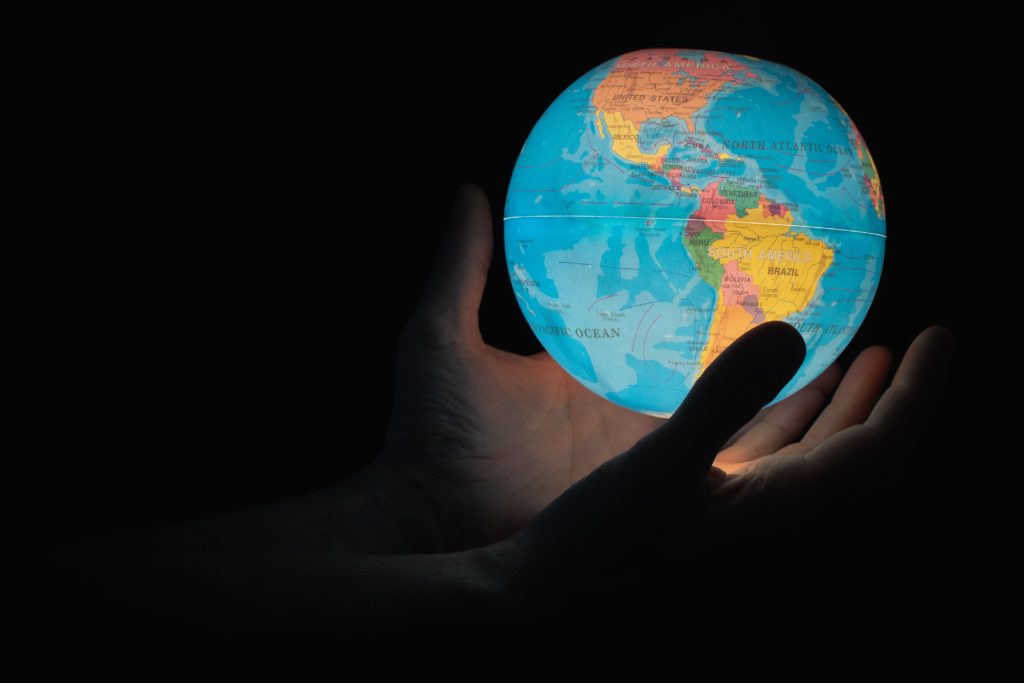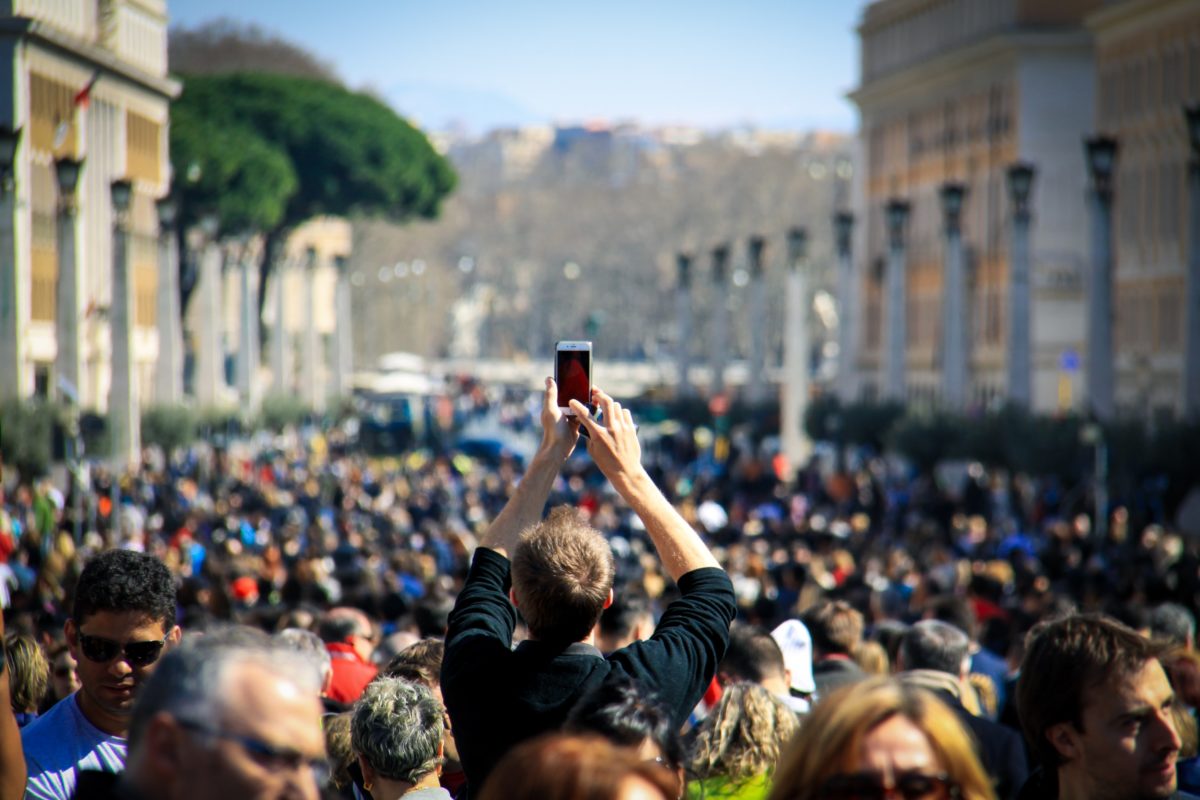Technology does not make the world smaller. In the 21st century, we are seeing a specifically digital evolution of diplomacy which may change the nature, and purpose, of statecraft. The digital world has created and enabled many new modes of living in and understanding the world; in terms of political power, and specifically international relations, this has made the state actor, still the recognised mover in diplomacy, more multi-faceted, more capable and more vulnerable.
If the last 200 years have seen the variable but increasing formalisation of the nation state, the next 200 years could see a reversal. In this new reality, we could see nationalism increasingly become a manipulable, psychological reaction, not the continuation of any historical process.
States first
The current recognisable framework of international relations is borne from a delicate world of power ‘balancing’, that worked on the ‘I win, you lose’ assumptions of zero-sum politics. This began in the competing ecology of European nation states, before expanding into the global ideological vessels of the Cold War. While each state was distinct, they all shared the tenet of being mutually recognised ‘power containers’. Then, as the superpower states began to explore new modes of power – ‘spheres of influence’, ‘proxy-wars’ and ‘technological battlefields’ – the Cold War ended. History remains undecided on whether the former is connected to the latter.

The end of the Cold War is arguably where states stopped being simple – Fukuyama’s End of History never came to pass, at least in the sense in which it was widely understood. Power is still concentrated in those states with strong armies and large economies, but liquidity of information (digitisation) has provided a sea of opportunity for state and non-state actors to have diplomatic influence. What does this mean in reality? It means fake news is the same entity as cyberwarfare.
The digitisation of information and its exchange—the internet—has not only made the world bigger and faster, it has also empowered the individual. Points of reference, theory and commonality which were traditionally in line with a top-down (state) agenda can now be accessed anywhere and from any combination of competing sources. Identity, loyalty and engagement can all be competed for, won and lost on new digital battlegrounds – from social media, to news sources, to marketplaces.

Can we see this as ‘democratising’? As a licencing of the individual, and a welcome diminution of overarching state control? There was a window ten years ago when this might have been the case, but following the suppression of the Arab Spring, and Moscow and Beijing’s extensive efforts to control their domestic networks and traduce other states via disinformation, we cannot expect the digital revolution to bring inherent political liberty; the monopolisation of power is still integral for states. But things are changing.
Digiplomacy
New channels of power have opened. In 2014, Estonia launched a digital e-citizenship programme which gave Tallinn the ability to court skills and IP without the need to spend on physical infrastructure. Since the beginning of the global pandemic, many interactions have moved online, reducing the need for physical space or territorial integrity. The concept of private ‘states’ as cities or countries has also grown in recent years, as online communities form around the idea of shared, business-run government, free from traditional nation states and their systems of taxation.
None of these things on their own fundamentally alters the modern state or how international relations are conducted but they all represent the execution of state (and other) power through new digital vehicles. Online retail sales in the UK almost doubled last year to 36% of total sales. In such a world, the opening of digital, if not physical, markets is a powerful trade tool, as is the enforcement of best cybersecurity practice and scrutiny of digital beneficial ownership. Understanding and executing policy in this space is of particular interest to the US and her allies in countering Chinese commercial subterfuge.
All of this creates a market of information in which consumers can be manipulated to accept or reject competing agendas. What used to be a one-way channel (propaganda) is now an algorithmic variable tailored to the individual. Depending on how threatened they feel, states can see this as an erosion or a reinvention of their power.
Digital Anarchy
Equally constructive is the alternative concept of ‘digital anarchy’. Nefarious ‘digiplomacy’ can disrupt and coerce the internal workings of a state; arguably, it already has. The concept of confused or uncertain states which fall prey to predators in the form of other states or different bodies has pervaded much of the new history of the last century. There is now no more fecund environment in which to create anarchy than online. Through disinformation and targeted attacks, a nation state’s psyche can quickly become introspective, polarised and ultimately self-destructive. Further, this digital anarchy pervades worldwide as the natural status between states. It is not in itself a dangerous place but it can quickly become instrumental for those with sinister intentions.
Taking the possibility and practice of digital diplomacy forward, what might we expect to see? Below are a number of possible variables which could illustrate the future:
The formation of digital blocs has largely already happened. The West has an online agenda different from that of China, and both sides seek power through ‘digiplomacy’.
However, against this we may see the continued rise of individual latitude, enhanced by digital avatars and the landscapes of social media, and enabled by the digitisation of work, money and society.
As a result of this, we may see a continued rise of client citizens able to pick and choose their loyalties, interactions and allegiances with competing legal entities. This kind of agility has typically been the preserve of multinational corporations. For the individual, it can go beyond the realms of work and taxation to define identity and how and why they see themselves as a citizen.
This in turn could lead to weaker national polities and a competition for individual sentiment, attention and loyalties. If client citizens create competitive spaces, then states with inclusive outlooks will likely be rewarded. This in turn could marginalise nationalist identities, making them impractical and reactive (this has its own concerns).
If ‘digiplomacy’ does change the relationship between the global state and the global citizen, then it can be democratising – in practice if not consciousness. As mentioned, the changes above are variables, not predictions: but the future may well belong to those who best understand them.
Image top from by Nick Fewings on Unsplash

